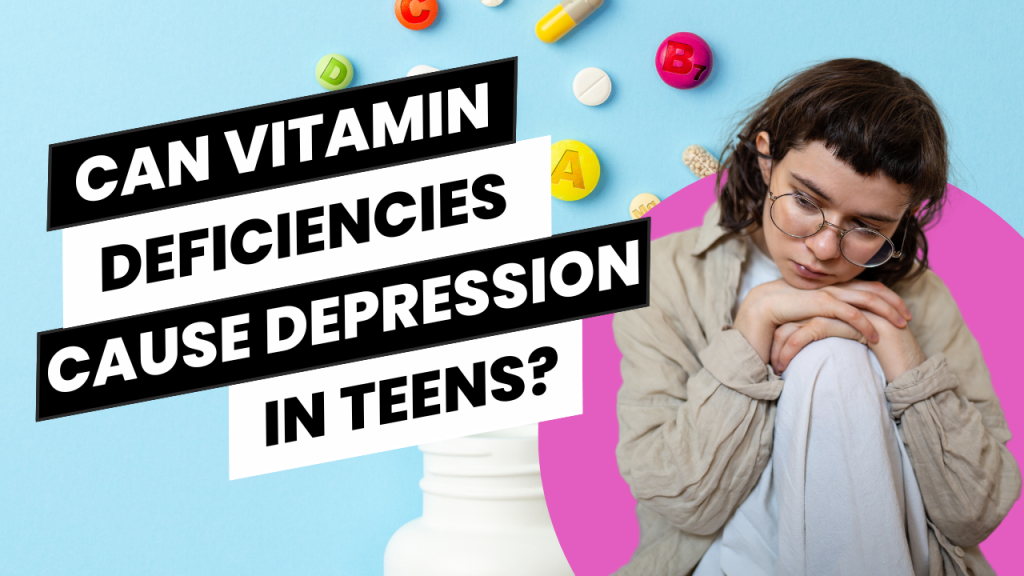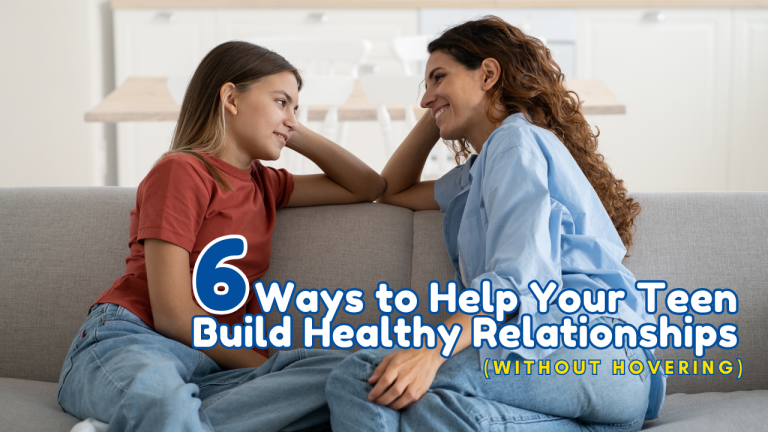*The following information is not intended to be medical advice but intended to be informational. Please seek advice from a medical professional for diagnosis and treatment options.
He’d had his ups and downs as a teen, but this was different.
Caden had been depressed, easily agitated, and distant for more than a year, and his parents were getting more and more concerned.
Then, he began complaining of being too tired to do almost anything besides lay around—even things he used to enjoy. That’s when his parents knew they needed to take several steps to address his depression.
First, they had continual open and honest conversations with Caden to listen and encourage. They set up calls with his mentor and looked into counseling.
Then, they did something most people don’t think to do. They set up an appointment with a functional medical doctor to test Caden for nutritional deficiencies. It turned out that Caden was severely deficient in Vitamins B12 and D, along with a few other smaller issues that needed to be addressed.
Within two weeks of treatment, Caden had almost completely turned around. He was happy, got a new job he was excited about, and was spending time with his brother again. He still needed to work through some other aspects of addressing his depression
To find out if your teen needs help, download our free guide HERE.
The Vitamin Deficiency – Depression Connection
While it is important to remember that there are many factors involved in maintaining mental health, including physical activity, proper sleep, stress management, and social support, research has found that deficiencies in nutrients have a significant impact on brain and nervous system function, which can lead to symptoms of depression.
Learn more about how to prevent depression in your teen HERE.
Many studies have revealed that young people tend to eat foods high in sugar and saturated fats, which lead to obesity and disease, along with mental health issues like depression and anxiety. Poor diet can lead to nutritional deficiencies, but such deficits can also be genetic.
While deficiencies of protein, B vitamins, vitamin D, magnesium, zinc, selenium, iron, calcium, and omega-3 fatty acids can all contribute to depression symptoms, we’ll cover the two primary nutrients that tend to impact teens.
Vitamin D
Scientific evidence suggests that there may be a link between vitamin D deficiency and depression. For instance, a 2018 literature review of 14 studies with a total of 31,424 participants found that deficiencies in this nutrient are associated with depression.
According to medical studies, vitamin D is critical to body function. Your muscles, heart, brain, and immune system all have vitamin D receptors. A deficit can cause mood changes, fatigue, forgetfulness, a loss of interest in activities, and trouble sleeping—all symptoms of depression.
Vitamin D deficiency is not considered a cause of depression but can present similar symptoms and intensify existing depression.
Treatment can include light therapy and a high-quality vitamin D supplement (typically not the brand you pick up at the grocery store). Please note: Medical guidance should be sought before beginning any treatment or supplementation.
Vitamin B12
Extensive research suggests that there may be a link between low blood levels of vitamin B12 and depression. The study also found that low blood levels of B vitamins may affect brain functioning, leading to changes in mood and depressive symptoms.
While researchers stop short of claiming B12 supplementation will prevent or treat depression, there is clear evidence that the vitamin is an important part of an individual’s overall health and well-being, which includes mental health.
Low vitamin B12 levels are not always the result of poor diet but can stem from genetic disposition or other factors.
Like vitamin D and other nutrients, it is important to have your teen tested for low levels of B12 to determine if your teen requires supplementation.
The Whole-Person Approach to Healing
If your teen has been struggling with depression, is physically tired, or exhibiting other symptoms we’ve listed in this article, it may be beneficial to speak with a healthcare professional about getting your teen tested for nutrient deficiencies. Some simple adjustments can make a big difference in the mood and life of your teen!
Beyond nutritional considerations, it’s important to approach issues like depression from more than one area. At House of Hope, we use a whole-person approach to healing when we receive troubled teens in our residential program. We utilize professional counseling, discipleship, spiritual guidance, life skills training, customized education, and more.
When it comes to depression in teens, we recommend the same approach. Physical wellness is one important aspect to consider; however, ensuring your teen meets their nutritional needs is not a substitute for seeking professional help. If your teen is struggling with depression, we recommend speaking with a counselor, assessing friend groups and social media use, and engaging in regular open communication.
To determine if your teen needs counseling, take our online quiz HERE.







